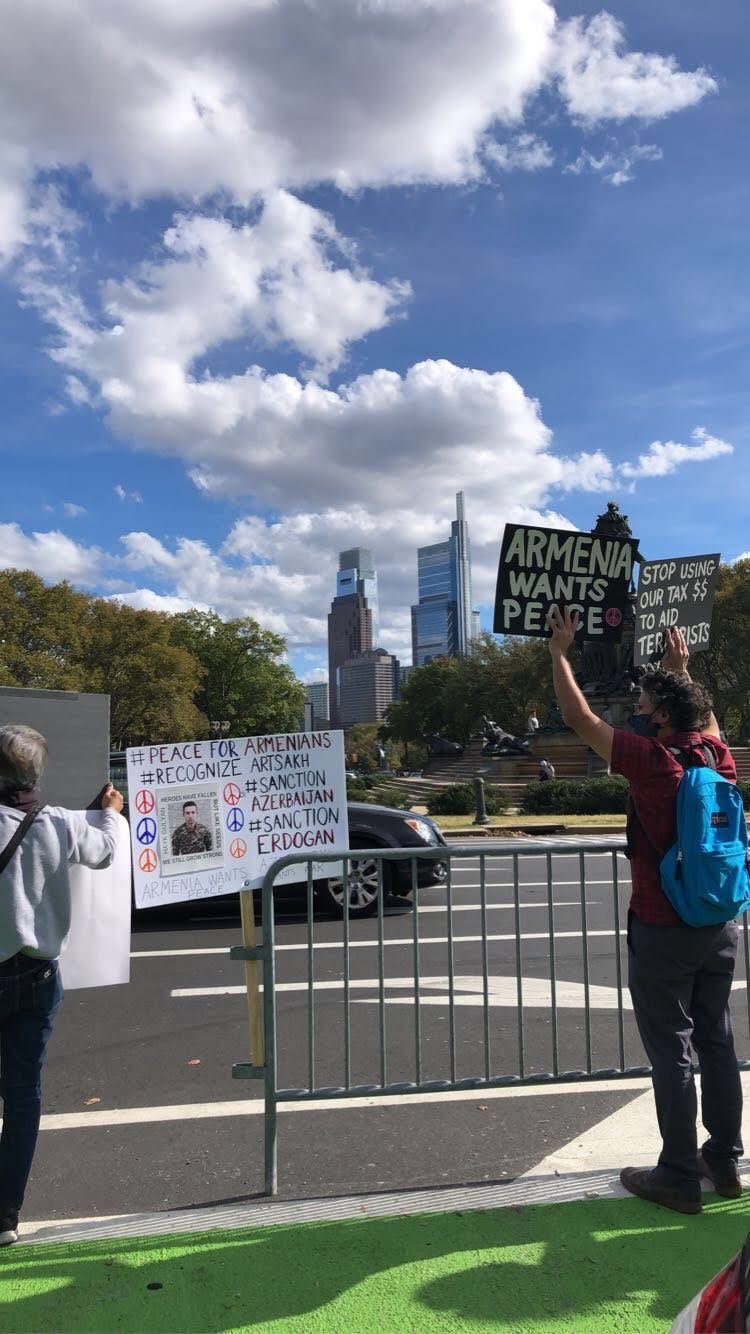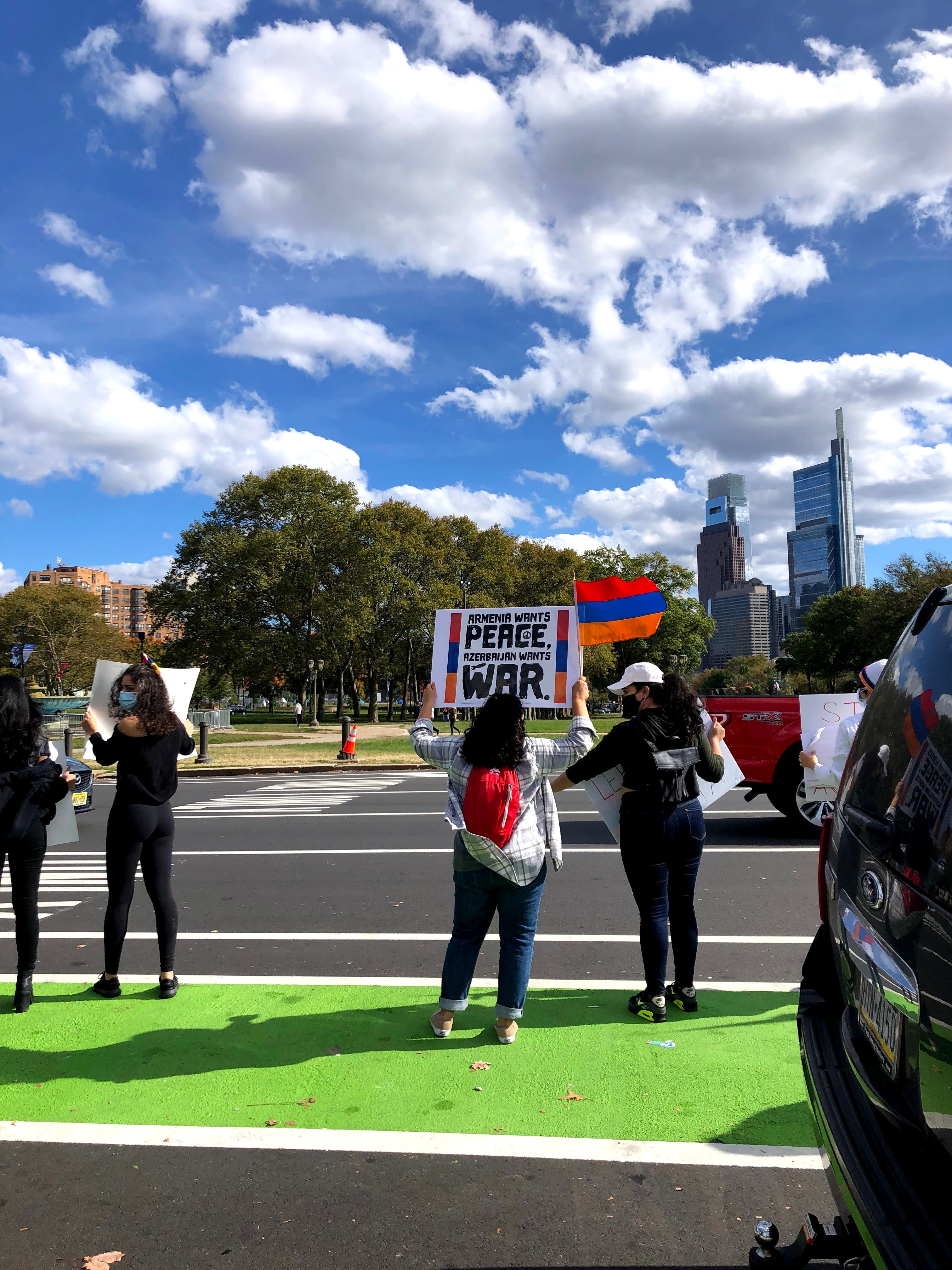Sona Bardakjian ‘21
For those of you who don’t know, I am Armenian, and you should care about Armenia. My home and people are being attacked and threatened for doing nothing but living, and the world continues to stay silent and watch as a part of our culture and history is being taken away. My people and I have been hurting for centuries, and it’s about time that people began to listen to our cries for help and peace. Here’s what you need to know.
Armenia is a small country in the Caucasus Mountains, surrounded by Turkey, Georgia, Iran, and Azerbaijan. It is also a country that has experienced tremendous loss throughout its ancient history. In 1915, the Ottoman Turks orchestrated a genocide against the Armenians, and led the first major genocide of the 20th century. 1.5 million lives were lost and Armenia lost about 70% of their land to the Ottoman Turks, keeping just mainland Armenia, and Artsakh, a region of land list east of Armenia. But, 105 years later in 2020, we are facing the threat of even more loss: losing Artsakh to Azerbaijan.
To put it into perspective, Armenia is one of the oldest countries in the world, and one of the first six countries ever recorded on a map. Armenia’s history is about 3500 years old, almost 100 times longer than the history of the United States. Thousands of ancient churches and monuments reside in Armenia and the surrounding areas, especially Artsakh. It was in Artsakh that Mesrob Mashtots created the Armenian alphabet in the year 405. It is in Artsakh that the Dadivank Monastery stands, after surviving attacks from the Mongols, Persians, and Soviets. It is in Artsakh that 90% of the population is ethnically Armenian. However, Azerbaijan refuses to acknowledge Artsakh as an Armenian territory. After the formation of the Soviet Union, the country of Azerbaijan was founded, and Joseph Stalin gave Artsakh to them, despite its Armenian history. Because of the unfair rule of a dictator, Armenia is forced to fight to preserve an integral piece of its ancient history.
Azerbaijan began to shell innocent civilians, churches, kindergartens, homes, hospitals, and worked hand in hand with the Turkish president, Erdogan, to try and annihilate Artsakh, make it Azerbaijani, and, according to Iham Aliyev, the president of Azerbaijan,“Show the Armenians who we are. We are chasing them like dogs.” Hearing that statement was truly indescribable—knowing the horrific stories from my great grandparents who survived genocide, and now hearing modern day leaders threaten the same thing, terrifies me.
On November 10, Armenian Prime Minister Nikol Pashinyan signed an agreement to stop the fight, and surrender after 44 days of fighting. Despite being faced with advanced military weaponry and strong armies, our biggest enemy was in fact, the misuse of words and lack of coverage. Not only was it a physical war, but a war in the media, which is arguably more heartbreaking. I would hear stories from friends of their parents, uncles, cousins, and friends in the war, and it was truly saddening to hear what was happening to my people. For weeks, the world proceeded as normal, and no media covered the topic. However, once the media finally began to cover the violence, Azerbaijan tried to twist the story and portray Armenians as the perpetrators of violence, when in reality, Armenia was simply trying to defend a part of their ancient culture.
The media was full of stories dancing around the topic of genocide, refusing to acknowledge the many war crimes of Azerbaijan, and describing the even fight for an insignificant part of land. Reading these stories broke me because they simply are not true. Artsakh is more than a piece of land to Armenians. It is one of the only pieces of cultural land we have left, and the circumstances of war were severely unfair, leaving Armenians at an extreme disadvantage. My people had to fight so hard in 1915, losing 1.5 million martyrs and over 70% of their land, and now, we were fighting again to preserve more of our history.
After the surrender was called, thousands of Armenians were forced out of their homes in Artsakh, and no one said anything. Looking at pictures from 1915 compared to those of 2020, the only difference is that people now were driving away from their homes instead of walking. My great grandparents survived a genocide and carried on thier Armenian culture in places that were not thier homeland, just for the world to watch in silence as it happens again.
So why should you care?
These attacks are not just happening in foreign, Middle Eastern countries, but in the United States as well. My friend’s school in San Francisco was vandalized, with threats spray painted on the doors, windows smashed, and Turkish flags draped over the Armenian flags. An Armenian cultural center in Los Angeles was set ablaze. Even closer, in Philadelphia, a woman and her five-year-old son were attacked because they had an Armenian flag bumper sticker on their car. These attacks are going on right under our noses, and yet the world watches in silence, as a war criminal tries to erase my culture. Noemie Semerjian, ‘23, a fellow Armenian American at EA says, “I think people should care because Azerbejian waged war during a global pandemic, and war crimes and genocide are being committed against innocent Armenians, and homes are being taken away from 100,000 displaced Armenians.”
Sitting in Armenian history classes throughout grade school, learning about the Armenian genocide, I would always wonder how the modern world would have reacted and responded. In 2020, I got my answer. Even when my fellow Armenians and I were screaming, protesting, and pleading for peace and help, a majority of the world stayed silent, and because of that, I lost yet another part of my culture. Now I can only hope that one day, Artsakh will return to its Armenian roots.

